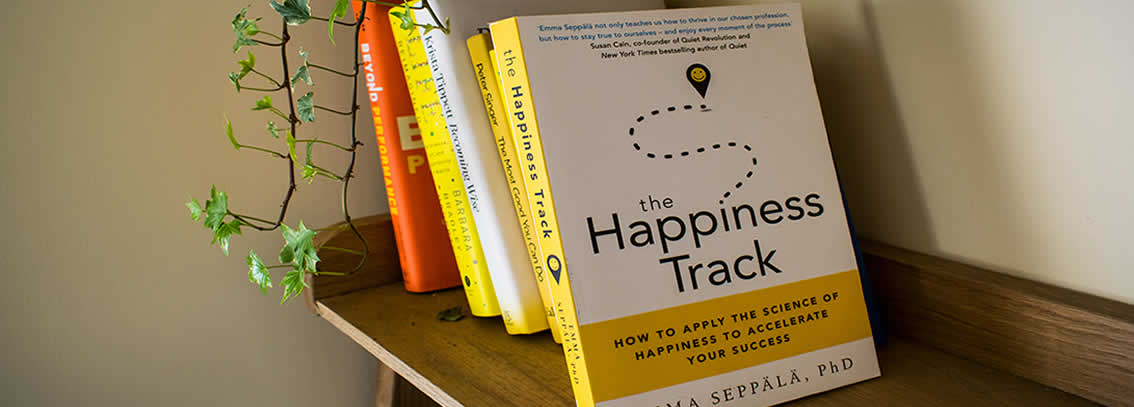
The Happiness Track by Emma Sepalia
Time to Read: A few days of light picking, or 5 hours 58 minutes on audiobook.
£10.49 by Harper Collins available at Waterstones
Why
A good ‘starter’ book in the happiness and wellbeing genres, useful for people with some life experience beyond school. One for 18-80 year olds.
What
Happiness books are plentiful but can leave you with a sense of smugness from the author. This is much better – distinctly ‘unsmug’ – which probably reflects Sepalia’s professional world. It was practically written and backed up with deep empirical evidence and research you would expect from someone with her background, giving the feel of something aimed at the more professional reader than some of the more sentimental examples in this genre.
The books premise is that when we are happy, we are 12% more productive (2009, UK research), we are more resilient, more likely to strengthen existing relationships and less likely to remain ill, when sick.
The keys are:
- living in the moment: which requires us to stop trying to multitask
- tapping into the resilience we have: using breathing exercises, walking, hugging, slow activities to manage stress
- managing our energy: “energy not time is the fundamental currency of high performance”. Practising gratitude is evidence based example of how to do this
- doing nothing: critical to problem solving – once have information, brain needs to work in the background, not foreground, to come up with creative ideas. This can look like listening to music, walking or switching to a useful admin task
- being good to ourselves: “failure is success in progress” Einstein. We need to believe in effort not strengths and become more self compassionate in our self talk.
- showing compassion to others (see also Adam Grant Give and Take – connect to this book review): Charles Darwin: “communities which included the greatest number of sympathetic members would flourish best and rear the greatest number of offspring”. Not Darwinian to believe in the survival of the fittest. 2011 research showed that compassionate workplaces achieve significantly higher financials, customer satisfaction and productivity and employee engagement.
How
Sepalia is professionally well-established, holding a PhD and leading the Berkeley programme on happiness.
Although a practical book by its nature, it is not one where you need considerable background knowledge to make use of its messages. It won’t necessarily intellectually challenge the reader as deeply as other of the author’s contemporaries but is definitely a worthwhile read and full of practical tactics.
Check out Pico Iyer 15 minute TED on stillness and silence for inspiration on how silence and stillness are critical in the accelerated world we live in
Random Fiction Recommendation:
‘The Bad Girl’ by Mario Vargas Llosa. Set in the 1950s, and telling the story of heartbreak and obstinacy, old age and passion. Llosa won the Nobel Prize in Literature. A great story with some good writing and a straightforward medium-level read.
If you would like to receive these generally bi-monthly Thrive in Five newsletters, sign up here.
